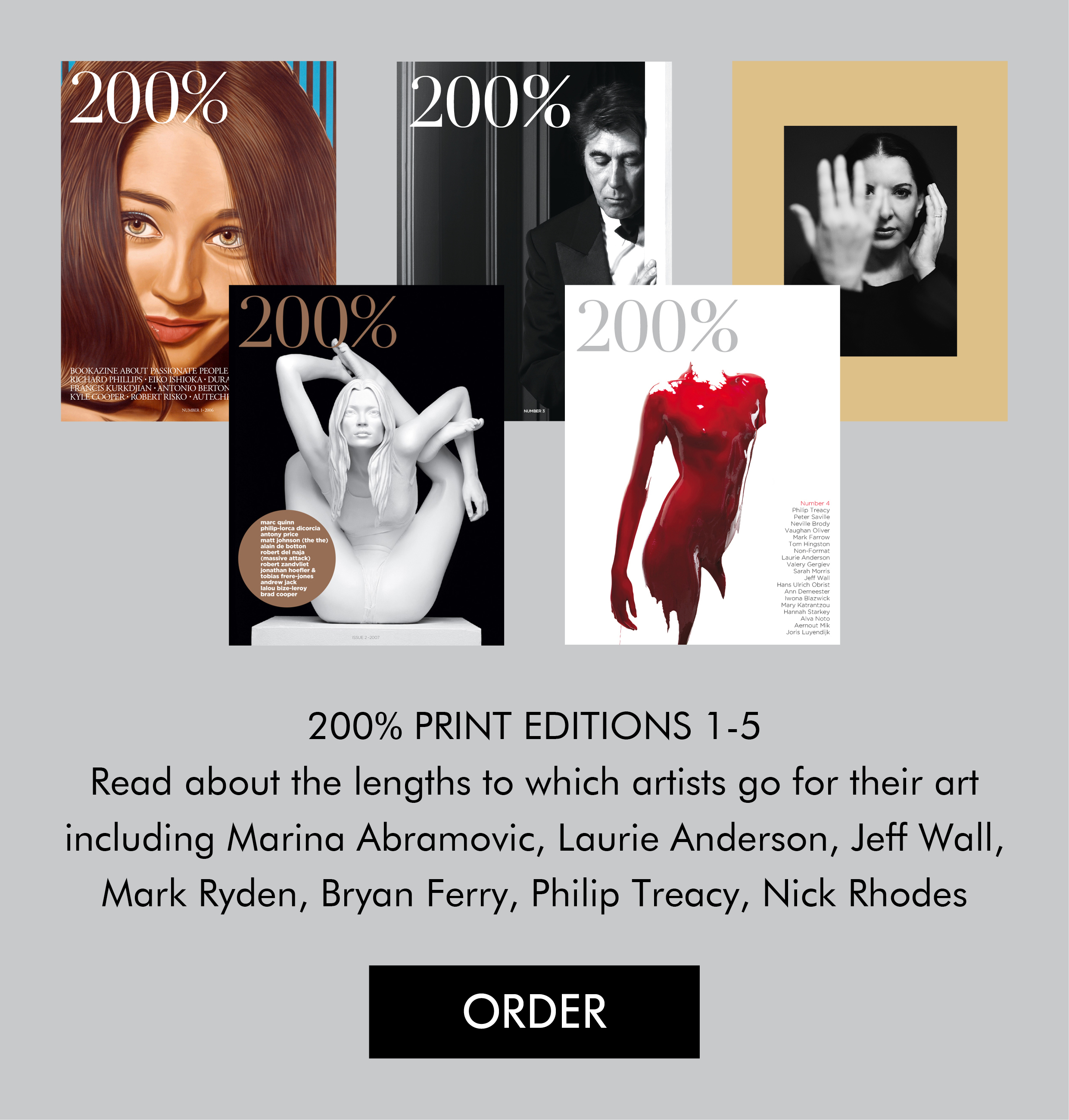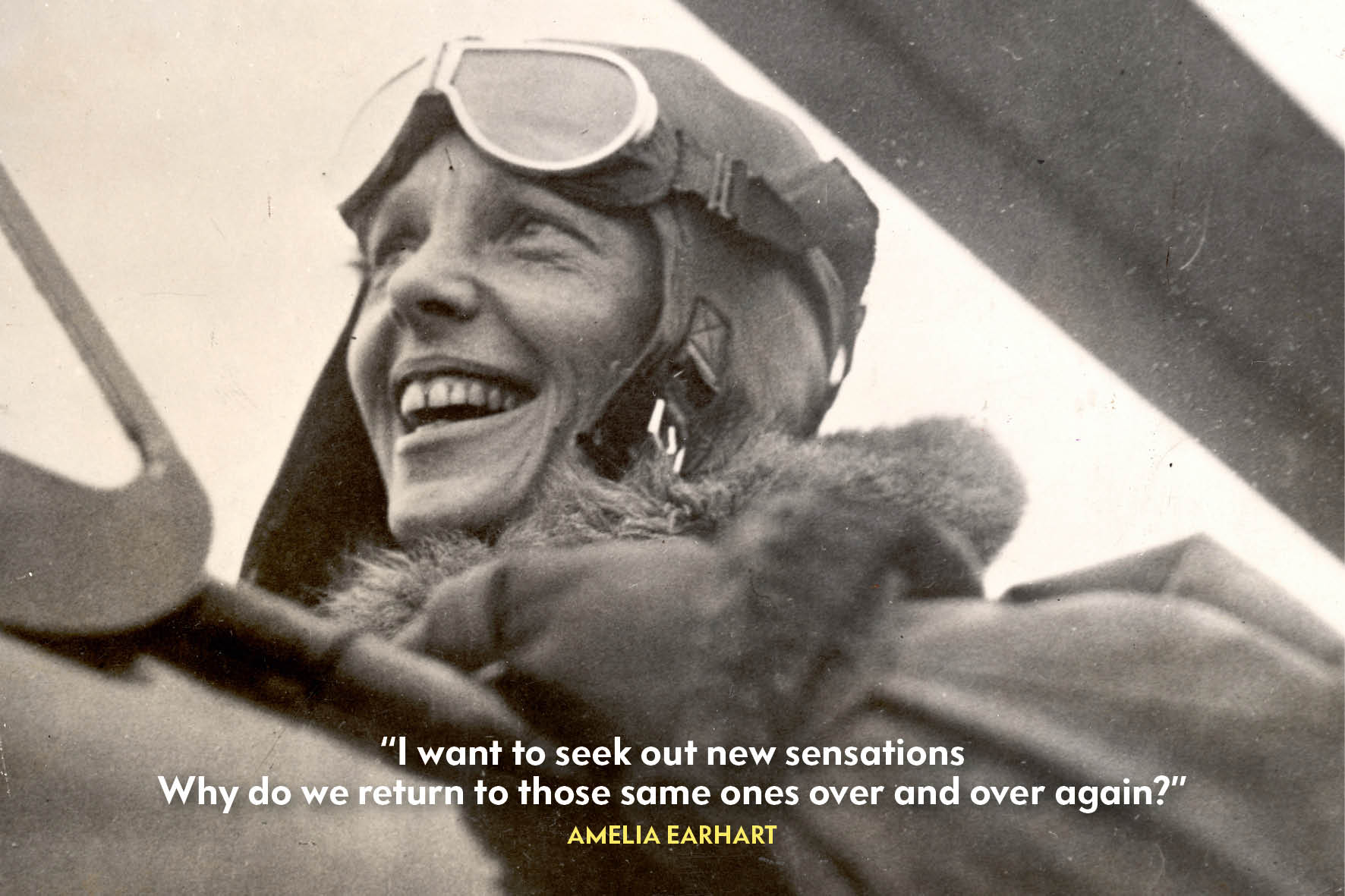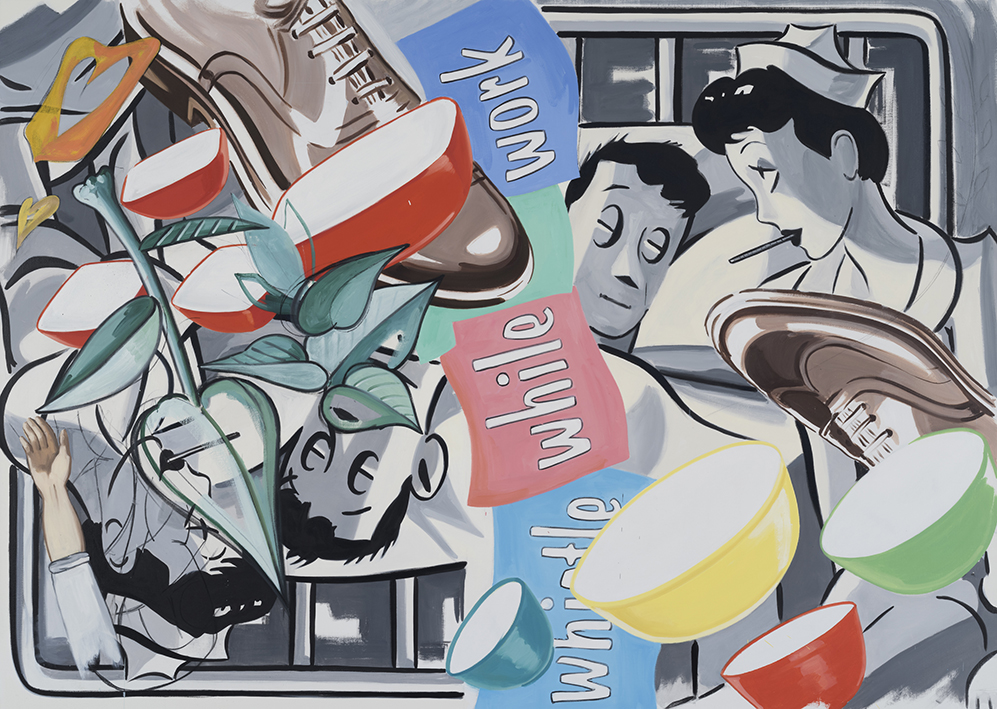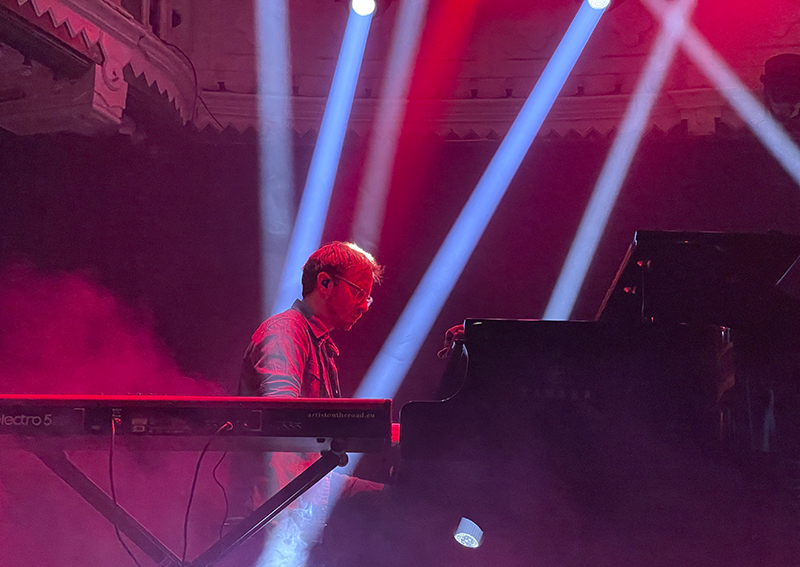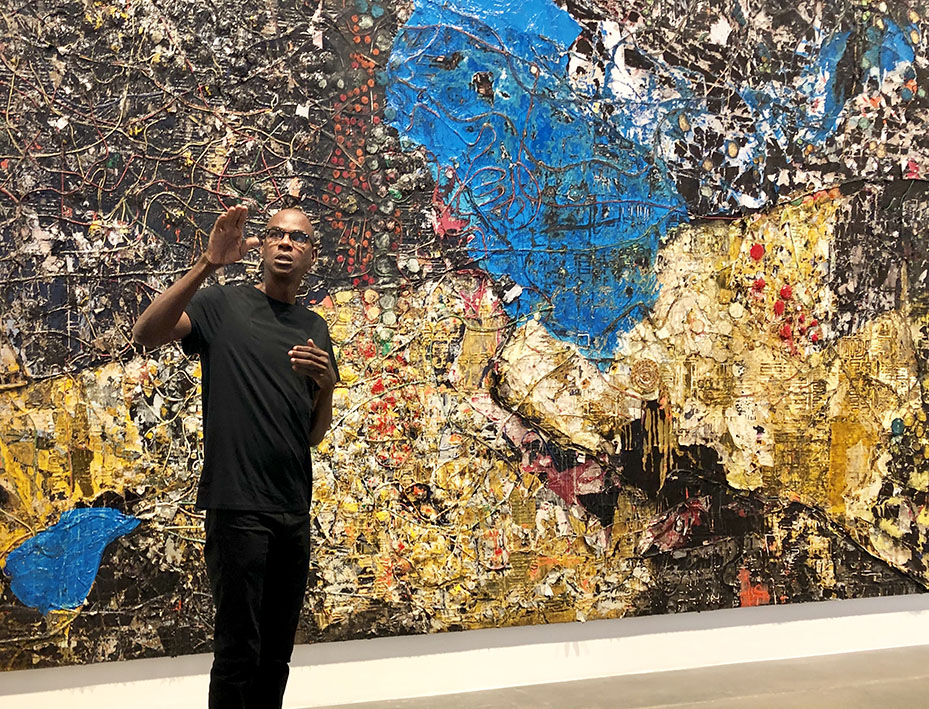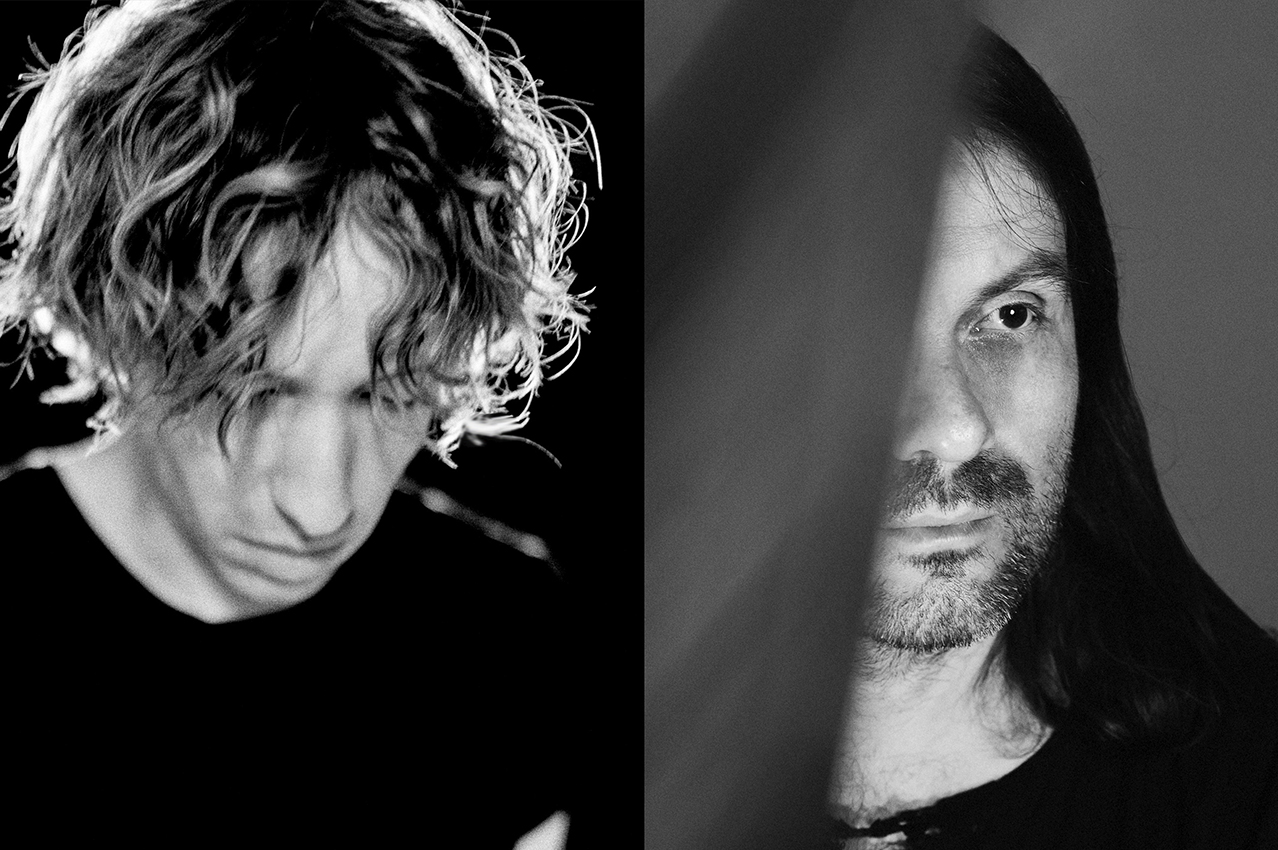 At the age of 29, the Latvian, Andris Nelsons, was appointed Music Director to the City of Birmingham Symphony Orchestra (CBSO). This is a prestigious position for a conductor as the CBSO, which has grown into a 90-piece ensemble, has gained a worldwide reputation since Simon Rattle became the Principal Conductor in 1980.
One would have thought that an orchestra of such calibre would have chosen their music director after a protracted period of contemplation and review of several candidates, but quite the contrary. Nelsons was appointed to the job in 2008 following only a private concert and a recording session, without having conducted the CBSO in public. The young conductor is signed through the 2013-2014 season.
There must be something about him as to why the CBSO decided to appoint him in this manner. Meeting with Nelsons one quickly gains a sense as to why the CBSO consider him the right man for the job: he comes across as a sympathetic, generous person who talks very knowledgeably, passionately and openly about his feelings and emotions in music, sometimes in an disarming way. One could understand that Nelsons is a person who can inspire and excite an orchestra. Stephen Maddock, the CEO of the CBSO, called Nelsons “the next big thing” when he talked about the CBSO’s search for its new music director. Alex Ross, music critic of ‘The New Yorker’ expressed a similar thought whilst Nelsons was touring America as a guest conductor, writing “He has the makings of a great conductor, and orchestral administrations on several continents are doubtless keeping an eye on him”.
200% met with Nelsons in one of the dressing rooms of the Royal Opera House in London during the rehearsal period of Puccini’s ‘Madama Butterfly’ to discuss whether music is his means to find answers to the ‘big questions of life’; how he finds solace in music; whether to sacrifice your life for another person; and the criticism of his expressive mimic and gestures when he conducts.
200%: You have called watching the opera performance of Wagner’s ‘Tännhauser’ as a five year old child “one of the strongest experiences of my life.” Could you explain why this experience made such a deep impression on you?
Andris Nelsons: This was the first opera I ever saw; had it been another opera, it might have also influenced me so strongly. Sitting amongst adults and being, perhaps, the only child in the audience might be one of the reasons why it made such an impression on me, but I think, most of all, it was being exposed at such a young age to serious questions about life and death, about love, that made a big impression on me. Since then, in my life, I have been thinking a lot about these ‘big questions’, about the purpose of life, etc. Maybe that’s why I became a very serious person [laughs].
The music of ‘Tännhauser’ which is not necessarily the music for a five year old, made a formative impression on me, as it is so powerful and compelling. I think since then Wagner has been a very strong influence on me as a composer. I love his music and it’s like an hypnotic power to me.
200%: Have there been other experiences in your life that have had similar impacts on you?
Andris Nelsons: Yes, about the same age, maybe one year later, ‘Jesus of Nazareth’ by Franco Zeffirelli – a six hour long TV series about the life of Christ – made a big impact on me. I believe that ‘Tännhauser’ and ‘Jesus of Nazareth’ are the reasons why I became a musician.
200%: What specifically appealed to you from ‘Jesus to Nazareth’ – was it, again, questions of life and death?
Andris Nelsons: Yes, I started to think about death from a very early age; what happens after death and what’s the reason of living? Should we be afraid of death or not? All these questions continually worry me, as they have worried all the great composers, such as Mahler, Wagner and Beethoven. Most of these composers I think, struggled with fate, with destiny, with death and love.
200%: Is music your means to find out the answers to those questions?
Andris Nelsons: I don’t know if you will find answers. Mahler ends his Ninth Symphony with a big question mark, which can be seen as the soul going to heaven, or somewhere, but still a question mark, ie what happens after death?
Beethoven finishes his Ninth Symphony almost like a victory, the “Ode to Joy” chorusin the final movement, but about what is this victory really?
Whilst it may not provide answers to these questions, I think the great thing about music is that it allows you to dream; to have different interpretations, scenarios of life. Through music you can ‘live’ all those different scenarios with a happy or a tragic end. Music gives me the ability to live a different life. It allows me to play different characters as when I conduct, for instance, an Opera like ‘Madama Butterfly’ I can identify myself with its characters; Butterfly, Pinkerton or Sharpless, which makes you live a different life at that moment.
Generally, in life I’m a shy person; when I conduct, though, I forget about my shyness. When I’m conducting, I can be brave, which I’m not every day, I can be an hero, a terrible or a nice man – I can be anything I want through music.
200%: Thus, is conducting a way for you to be your true self?
Andris Nelsons: Yes, I think so. Conducting allows me to show who I truly am, which I can’t do in everyday life, due to my shyness or, perhaps, out of politeness. When I’m conducting I can show my ‘feelings’ to the whole world, whether good or bad, and express myself without words, which is great as I’m not a person who is able to readily express himself in words. I try, but it never works [laughs]; through music I can express what I feel in life. Of course, when you rehearse with the orchestra you need to be clear, and express yourself through words, somehow that comes naturally to me.
200%: What attracts you about ‘Madama Butterfly’ which you perform at the Royal Opera House?
Andris Nelsons: ‘Madama Butterfly’, for me, is one of the strongest personalities in all history of music as she is willing to sacrifice everything for her husband, Pinkerton, who actually isn’t worthy of her. He is a very weak man with no backbone. He doesn’t have much of a conscience, which she knows, but still she loves him. She gave up her religion, she gave up her family, everything, for her love, her hopes, and finally sacrificed her life in the face of dishonour. I believe that to sacrifice yourself for someone else is the hardest act in life. I’m so fascinated about this and I don’t know if I could do it – I don’t think I could do it. Therefore, I believe this is why Butterfly’s story it’s such a touching and evocative story.
200%: Do you also find solace in music?
Andris Nelsons: I think I do. When I read about the work and life of composers Irealize that I am not alone with problems or thoughts: they also struggled with thoughts such as escapism; pretending they didn’t see the problems or questions they didn’t want to face and, by not dealing with them, they become even bigger problems. As they also struggled with these issues I feel supported somehow realizing that I am not alone with doubts and insecurities.
200%: Is there a specific example of something with which you have personally struggled whereby you found solace in a particular classical composer’s life or work?
Andris Nelsons: [long pause] As I travel a lot for my work I experience feelings of being homesick. When I’m in America rehearsing and touring for one month, I sometimes feel very lonely and miss people who are close to me, my wife, my family.
Antonin Dvořák’s composed the Ninth Symphony ‘The New World Symphony’ when he was living in America. I always thought it was about his experiences and impressions of this country, but subsequently discovered that when he composed itDvořák was feeling intensely homesick: this symphony is also about home, about being lonely and how it is to be lonely. The famous second movement [Largo] can be seen as a nostalgic reflection on his home country Czech Republic.
I like being in America, but when I’m there for a long time I start to miss Europe.Composers like Dvořák, Béla Bartók and Sergei Rachmaninoff endured periods of homesickness when they left their native country. When I first heard their music I couldn’t understand why these incredibly successful and wealthy composers made such sad and melancholic music. Now I understand it as I have experienced feelings of loneliness and homesick myself when I’m travelling.
These composers were living one hundred, two hundred years ago and it was more difficult for them to deal with these feelings as there were no mobile phones and the post was very slow. Today, if you love someone, you can text to them “I love you” and your message reaches them in one second. Or, when I’m sad, I can call someone and talk with them directly about how I feel. In those times, though, if you felt lonely you couldn’t immediately tell your loved ones – you had to write a letter, which took, maybe, one month to be received; then you open the letter and you read it and write a reply.
Thus, if they hadn’t experienced those difficulties and feelings of loneliness, they may not have been inspired to produce such great compositions. For me, dealing with loneliness, I find solace in their work.
200%: There has been some discussion about your conducting style on the Internet: some find your body language irritating, distracting and excessive, whilst others find it overtly physical and idiosyncratic, but point out that it is because of an enthusiasm and enjoyment of the music with your physical style being so clearly for the orchestra’s benefit. What is your view on your own conducting style?
Andris Nelsons: [Laughs] When I conduct I don’t think how I look in an aesthetic sense of “do I look nice or too sweaty”? I only think of how to communicate my ideas about music to the orchestra. This means that my mimic and my gestures can be quite expressive and some people might think it is too much. When I conduct I’m also very much in the moment, where the music takes me, and I don’t think about how my body moves looks from the audience’s viewpoint.
It might change with age as young conductors seem to have bigger gestures but when they get older they reduce their physical demeanor. In maturing, some conductors become very minimalistic in their gestures, for example, Yevgeny Mravinsky or Wilhelm Furtwängler, but they compensate with their great personality or their prestige as a conductor.
200%: Are you looking to that moment when you become a ‘minimalistic conductor’?
Andris Nelsons: Yes, I am. Some people say that the orchestra is like a horse, which you shouldn’t over control otherwise it will throw you off. You need to let it have free rein, but there are also moments when you need to rein it in.
As experienced musicians, orchestras can play themselves. There are, though, moments when they need your help, which you have to sense. The more and more you perform a work you have a sense of the moments “now I don’t need to conduct, it goes so great I shouldn’t disturb” or “here I need to be involved more”. Sensing these moments, finding this balance of whether to conduct or not, is what I believe comes with age and experience.
Interview conducted and written by Thierry Somers, with contribution from Marie Drysdale (06/2011)
Photo: Marco Borggreve
Andris Nelsons will conduct ‘Madama Butterfly’ at The Royal Opera House on 2, 4, 8, 12, 15 July.
At the age of 29, the Latvian, Andris Nelsons, was appointed Music Director to the City of Birmingham Symphony Orchestra (CBSO). This is a prestigious position for a conductor as the CBSO, which has grown into a 90-piece ensemble, has gained a worldwide reputation since Simon Rattle became the Principal Conductor in 1980.
One would have thought that an orchestra of such calibre would have chosen their music director after a protracted period of contemplation and review of several candidates, but quite the contrary. Nelsons was appointed to the job in 2008 following only a private concert and a recording session, without having conducted the CBSO in public. The young conductor is signed through the 2013-2014 season.
There must be something about him as to why the CBSO decided to appoint him in this manner. Meeting with Nelsons one quickly gains a sense as to why the CBSO consider him the right man for the job: he comes across as a sympathetic, generous person who talks very knowledgeably, passionately and openly about his feelings and emotions in music, sometimes in an disarming way. One could understand that Nelsons is a person who can inspire and excite an orchestra. Stephen Maddock, the CEO of the CBSO, called Nelsons “the next big thing” when he talked about the CBSO’s search for its new music director. Alex Ross, music critic of ‘The New Yorker’ expressed a similar thought whilst Nelsons was touring America as a guest conductor, writing “He has the makings of a great conductor, and orchestral administrations on several continents are doubtless keeping an eye on him”.
200% met with Nelsons in one of the dressing rooms of the Royal Opera House in London during the rehearsal period of Puccini’s ‘Madama Butterfly’ to discuss whether music is his means to find answers to the ‘big questions of life’; how he finds solace in music; whether to sacrifice your life for another person; and the criticism of his expressive mimic and gestures when he conducts.
200%: You have called watching the opera performance of Wagner’s ‘Tännhauser’ as a five year old child “one of the strongest experiences of my life.” Could you explain why this experience made such a deep impression on you?
Andris Nelsons: This was the first opera I ever saw; had it been another opera, it might have also influenced me so strongly. Sitting amongst adults and being, perhaps, the only child in the audience might be one of the reasons why it made such an impression on me, but I think, most of all, it was being exposed at such a young age to serious questions about life and death, about love, that made a big impression on me. Since then, in my life, I have been thinking a lot about these ‘big questions’, about the purpose of life, etc. Maybe that’s why I became a very serious person [laughs].
The music of ‘Tännhauser’ which is not necessarily the music for a five year old, made a formative impression on me, as it is so powerful and compelling. I think since then Wagner has been a very strong influence on me as a composer. I love his music and it’s like an hypnotic power to me.
200%: Have there been other experiences in your life that have had similar impacts on you?
Andris Nelsons: Yes, about the same age, maybe one year later, ‘Jesus of Nazareth’ by Franco Zeffirelli – a six hour long TV series about the life of Christ – made a big impact on me. I believe that ‘Tännhauser’ and ‘Jesus of Nazareth’ are the reasons why I became a musician.
200%: What specifically appealed to you from ‘Jesus to Nazareth’ – was it, again, questions of life and death?
Andris Nelsons: Yes, I started to think about death from a very early age; what happens after death and what’s the reason of living? Should we be afraid of death or not? All these questions continually worry me, as they have worried all the great composers, such as Mahler, Wagner and Beethoven. Most of these composers I think, struggled with fate, with destiny, with death and love.
200%: Is music your means to find out the answers to those questions?
Andris Nelsons: I don’t know if you will find answers. Mahler ends his Ninth Symphony with a big question mark, which can be seen as the soul going to heaven, or somewhere, but still a question mark, ie what happens after death?
Beethoven finishes his Ninth Symphony almost like a victory, the “Ode to Joy” chorusin the final movement, but about what is this victory really?
Whilst it may not provide answers to these questions, I think the great thing about music is that it allows you to dream; to have different interpretations, scenarios of life. Through music you can ‘live’ all those different scenarios with a happy or a tragic end. Music gives me the ability to live a different life. It allows me to play different characters as when I conduct, for instance, an Opera like ‘Madama Butterfly’ I can identify myself with its characters; Butterfly, Pinkerton or Sharpless, which makes you live a different life at that moment.
Generally, in life I’m a shy person; when I conduct, though, I forget about my shyness. When I’m conducting, I can be brave, which I’m not every day, I can be an hero, a terrible or a nice man – I can be anything I want through music.
200%: Thus, is conducting a way for you to be your true self?
Andris Nelsons: Yes, I think so. Conducting allows me to show who I truly am, which I can’t do in everyday life, due to my shyness or, perhaps, out of politeness. When I’m conducting I can show my ‘feelings’ to the whole world, whether good or bad, and express myself without words, which is great as I’m not a person who is able to readily express himself in words. I try, but it never works [laughs]; through music I can express what I feel in life. Of course, when you rehearse with the orchestra you need to be clear, and express yourself through words, somehow that comes naturally to me.
200%: What attracts you about ‘Madama Butterfly’ which you perform at the Royal Opera House?
Andris Nelsons: ‘Madama Butterfly’, for me, is one of the strongest personalities in all history of music as she is willing to sacrifice everything for her husband, Pinkerton, who actually isn’t worthy of her. He is a very weak man with no backbone. He doesn’t have much of a conscience, which she knows, but still she loves him. She gave up her religion, she gave up her family, everything, for her love, her hopes, and finally sacrificed her life in the face of dishonour. I believe that to sacrifice yourself for someone else is the hardest act in life. I’m so fascinated about this and I don’t know if I could do it – I don’t think I could do it. Therefore, I believe this is why Butterfly’s story it’s such a touching and evocative story.
200%: Do you also find solace in music?
Andris Nelsons: I think I do. When I read about the work and life of composers Irealize that I am not alone with problems or thoughts: they also struggled with thoughts such as escapism; pretending they didn’t see the problems or questions they didn’t want to face and, by not dealing with them, they become even bigger problems. As they also struggled with these issues I feel supported somehow realizing that I am not alone with doubts and insecurities.
200%: Is there a specific example of something with which you have personally struggled whereby you found solace in a particular classical composer’s life or work?
Andris Nelsons: [long pause] As I travel a lot for my work I experience feelings of being homesick. When I’m in America rehearsing and touring for one month, I sometimes feel very lonely and miss people who are close to me, my wife, my family.
Antonin Dvořák’s composed the Ninth Symphony ‘The New World Symphony’ when he was living in America. I always thought it was about his experiences and impressions of this country, but subsequently discovered that when he composed itDvořák was feeling intensely homesick: this symphony is also about home, about being lonely and how it is to be lonely. The famous second movement [Largo] can be seen as a nostalgic reflection on his home country Czech Republic.
I like being in America, but when I’m there for a long time I start to miss Europe.Composers like Dvořák, Béla Bartók and Sergei Rachmaninoff endured periods of homesickness when they left their native country. When I first heard their music I couldn’t understand why these incredibly successful and wealthy composers made such sad and melancholic music. Now I understand it as I have experienced feelings of loneliness and homesick myself when I’m travelling.
These composers were living one hundred, two hundred years ago and it was more difficult for them to deal with these feelings as there were no mobile phones and the post was very slow. Today, if you love someone, you can text to them “I love you” and your message reaches them in one second. Or, when I’m sad, I can call someone and talk with them directly about how I feel. In those times, though, if you felt lonely you couldn’t immediately tell your loved ones – you had to write a letter, which took, maybe, one month to be received; then you open the letter and you read it and write a reply.
Thus, if they hadn’t experienced those difficulties and feelings of loneliness, they may not have been inspired to produce such great compositions. For me, dealing with loneliness, I find solace in their work.
200%: There has been some discussion about your conducting style on the Internet: some find your body language irritating, distracting and excessive, whilst others find it overtly physical and idiosyncratic, but point out that it is because of an enthusiasm and enjoyment of the music with your physical style being so clearly for the orchestra’s benefit. What is your view on your own conducting style?
Andris Nelsons: [Laughs] When I conduct I don’t think how I look in an aesthetic sense of “do I look nice or too sweaty”? I only think of how to communicate my ideas about music to the orchestra. This means that my mimic and my gestures can be quite expressive and some people might think it is too much. When I conduct I’m also very much in the moment, where the music takes me, and I don’t think about how my body moves looks from the audience’s viewpoint.
It might change with age as young conductors seem to have bigger gestures but when they get older they reduce their physical demeanor. In maturing, some conductors become very minimalistic in their gestures, for example, Yevgeny Mravinsky or Wilhelm Furtwängler, but they compensate with their great personality or their prestige as a conductor.
200%: Are you looking to that moment when you become a ‘minimalistic conductor’?
Andris Nelsons: Yes, I am. Some people say that the orchestra is like a horse, which you shouldn’t over control otherwise it will throw you off. You need to let it have free rein, but there are also moments when you need to rein it in.
As experienced musicians, orchestras can play themselves. There are, though, moments when they need your help, which you have to sense. The more and more you perform a work you have a sense of the moments “now I don’t need to conduct, it goes so great I shouldn’t disturb” or “here I need to be involved more”. Sensing these moments, finding this balance of whether to conduct or not, is what I believe comes with age and experience.
Interview conducted and written by Thierry Somers, with contribution from Marie Drysdale (06/2011)
Photo: Marco Borggreve
Andris Nelsons will conduct ‘Madama Butterfly’ at The Royal Opera House on 2, 4, 8, 12, 15 July.
 At the age of 29, the Latvian, Andris Nelsons, was appointed Music Director to the City of Birmingham Symphony Orchestra (CBSO). This is a prestigious position for a conductor as the CBSO, which has grown into a 90-piece ensemble, has gained a worldwide reputation since Simon Rattle became the Principal Conductor in 1980.
One would have thought that an orchestra of such calibre would have chosen their music director after a protracted period of contemplation and review of several candidates, but quite the contrary. Nelsons was appointed to the job in 2008 following only a private concert and a recording session, without having conducted the CBSO in public. The young conductor is signed through the 2013-2014 season.
There must be something about him as to why the CBSO decided to appoint him in this manner. Meeting with Nelsons one quickly gains a sense as to why the CBSO consider him the right man for the job: he comes across as a sympathetic, generous person who talks very knowledgeably, passionately and openly about his feelings and emotions in music, sometimes in an disarming way. One could understand that Nelsons is a person who can inspire and excite an orchestra. Stephen Maddock, the CEO of the CBSO, called Nelsons “the next big thing” when he talked about the CBSO’s search for its new music director. Alex Ross, music critic of ‘The New Yorker’ expressed a similar thought whilst Nelsons was touring America as a guest conductor, writing “He has the makings of a great conductor, and orchestral administrations on several continents are doubtless keeping an eye on him”.
200% met with Nelsons in one of the dressing rooms of the Royal Opera House in London during the rehearsal period of Puccini’s ‘Madama Butterfly’ to discuss whether music is his means to find answers to the ‘big questions of life’; how he finds solace in music; whether to sacrifice your life for another person; and the criticism of his expressive mimic and gestures when he conducts.
200%: You have called watching the opera performance of Wagner’s ‘Tännhauser’ as a five year old child “one of the strongest experiences of my life.” Could you explain why this experience made such a deep impression on you?
Andris Nelsons: This was the first opera I ever saw; had it been another opera, it might have also influenced me so strongly. Sitting amongst adults and being, perhaps, the only child in the audience might be one of the reasons why it made such an impression on me, but I think, most of all, it was being exposed at such a young age to serious questions about life and death, about love, that made a big impression on me. Since then, in my life, I have been thinking a lot about these ‘big questions’, about the purpose of life, etc. Maybe that’s why I became a very serious person [laughs].
The music of ‘Tännhauser’ which is not necessarily the music for a five year old, made a formative impression on me, as it is so powerful and compelling. I think since then Wagner has been a very strong influence on me as a composer. I love his music and it’s like an hypnotic power to me.
200%: Have there been other experiences in your life that have had similar impacts on you?
Andris Nelsons: Yes, about the same age, maybe one year later, ‘Jesus of Nazareth’ by Franco Zeffirelli – a six hour long TV series about the life of Christ – made a big impact on me. I believe that ‘Tännhauser’ and ‘Jesus of Nazareth’ are the reasons why I became a musician.
200%: What specifically appealed to you from ‘Jesus to Nazareth’ – was it, again, questions of life and death?
Andris Nelsons: Yes, I started to think about death from a very early age; what happens after death and what’s the reason of living? Should we be afraid of death or not? All these questions continually worry me, as they have worried all the great composers, such as Mahler, Wagner and Beethoven. Most of these composers I think, struggled with fate, with destiny, with death and love.
200%: Is music your means to find out the answers to those questions?
Andris Nelsons: I don’t know if you will find answers. Mahler ends his Ninth Symphony with a big question mark, which can be seen as the soul going to heaven, or somewhere, but still a question mark, ie what happens after death?
Beethoven finishes his Ninth Symphony almost like a victory, the “Ode to Joy” chorusin the final movement, but about what is this victory really?
Whilst it may not provide answers to these questions, I think the great thing about music is that it allows you to dream; to have different interpretations, scenarios of life. Through music you can ‘live’ all those different scenarios with a happy or a tragic end. Music gives me the ability to live a different life. It allows me to play different characters as when I conduct, for instance, an Opera like ‘Madama Butterfly’ I can identify myself with its characters; Butterfly, Pinkerton or Sharpless, which makes you live a different life at that moment.
Generally, in life I’m a shy person; when I conduct, though, I forget about my shyness. When I’m conducting, I can be brave, which I’m not every day, I can be an hero, a terrible or a nice man – I can be anything I want through music.
200%: Thus, is conducting a way for you to be your true self?
Andris Nelsons: Yes, I think so. Conducting allows me to show who I truly am, which I can’t do in everyday life, due to my shyness or, perhaps, out of politeness. When I’m conducting I can show my ‘feelings’ to the whole world, whether good or bad, and express myself without words, which is great as I’m not a person who is able to readily express himself in words. I try, but it never works [laughs]; through music I can express what I feel in life. Of course, when you rehearse with the orchestra you need to be clear, and express yourself through words, somehow that comes naturally to me.
200%: What attracts you about ‘Madama Butterfly’ which you perform at the Royal Opera House?
Andris Nelsons: ‘Madama Butterfly’, for me, is one of the strongest personalities in all history of music as she is willing to sacrifice everything for her husband, Pinkerton, who actually isn’t worthy of her. He is a very weak man with no backbone. He doesn’t have much of a conscience, which she knows, but still she loves him. She gave up her religion, she gave up her family, everything, for her love, her hopes, and finally sacrificed her life in the face of dishonour. I believe that to sacrifice yourself for someone else is the hardest act in life. I’m so fascinated about this and I don’t know if I could do it – I don’t think I could do it. Therefore, I believe this is why Butterfly’s story it’s such a touching and evocative story.
200%: Do you also find solace in music?
Andris Nelsons: I think I do. When I read about the work and life of composers Irealize that I am not alone with problems or thoughts: they also struggled with thoughts such as escapism; pretending they didn’t see the problems or questions they didn’t want to face and, by not dealing with them, they become even bigger problems. As they also struggled with these issues I feel supported somehow realizing that I am not alone with doubts and insecurities.
200%: Is there a specific example of something with which you have personally struggled whereby you found solace in a particular classical composer’s life or work?
Andris Nelsons: [long pause] As I travel a lot for my work I experience feelings of being homesick. When I’m in America rehearsing and touring for one month, I sometimes feel very lonely and miss people who are close to me, my wife, my family.
Antonin Dvořák’s composed the Ninth Symphony ‘The New World Symphony’ when he was living in America. I always thought it was about his experiences and impressions of this country, but subsequently discovered that when he composed itDvořák was feeling intensely homesick: this symphony is also about home, about being lonely and how it is to be lonely. The famous second movement [Largo] can be seen as a nostalgic reflection on his home country Czech Republic.
I like being in America, but when I’m there for a long time I start to miss Europe.Composers like Dvořák, Béla Bartók and Sergei Rachmaninoff endured periods of homesickness when they left their native country. When I first heard their music I couldn’t understand why these incredibly successful and wealthy composers made such sad and melancholic music. Now I understand it as I have experienced feelings of loneliness and homesick myself when I’m travelling.
These composers were living one hundred, two hundred years ago and it was more difficult for them to deal with these feelings as there were no mobile phones and the post was very slow. Today, if you love someone, you can text to them “I love you” and your message reaches them in one second. Or, when I’m sad, I can call someone and talk with them directly about how I feel. In those times, though, if you felt lonely you couldn’t immediately tell your loved ones – you had to write a letter, which took, maybe, one month to be received; then you open the letter and you read it and write a reply.
Thus, if they hadn’t experienced those difficulties and feelings of loneliness, they may not have been inspired to produce such great compositions. For me, dealing with loneliness, I find solace in their work.
200%: There has been some discussion about your conducting style on the Internet: some find your body language irritating, distracting and excessive, whilst others find it overtly physical and idiosyncratic, but point out that it is because of an enthusiasm and enjoyment of the music with your physical style being so clearly for the orchestra’s benefit. What is your view on your own conducting style?
Andris Nelsons: [Laughs] When I conduct I don’t think how I look in an aesthetic sense of “do I look nice or too sweaty”? I only think of how to communicate my ideas about music to the orchestra. This means that my mimic and my gestures can be quite expressive and some people might think it is too much. When I conduct I’m also very much in the moment, where the music takes me, and I don’t think about how my body moves looks from the audience’s viewpoint.
It might change with age as young conductors seem to have bigger gestures but when they get older they reduce their physical demeanor. In maturing, some conductors become very minimalistic in their gestures, for example, Yevgeny Mravinsky or Wilhelm Furtwängler, but they compensate with their great personality or their prestige as a conductor.
200%: Are you looking to that moment when you become a ‘minimalistic conductor’?
Andris Nelsons: Yes, I am. Some people say that the orchestra is like a horse, which you shouldn’t over control otherwise it will throw you off. You need to let it have free rein, but there are also moments when you need to rein it in.
As experienced musicians, orchestras can play themselves. There are, though, moments when they need your help, which you have to sense. The more and more you perform a work you have a sense of the moments “now I don’t need to conduct, it goes so great I shouldn’t disturb” or “here I need to be involved more”. Sensing these moments, finding this balance of whether to conduct or not, is what I believe comes with age and experience.
Interview conducted and written by Thierry Somers, with contribution from Marie Drysdale (06/2011)
Photo: Marco Borggreve
Andris Nelsons will conduct ‘Madama Butterfly’ at The Royal Opera House on 2, 4, 8, 12, 15 July.
At the age of 29, the Latvian, Andris Nelsons, was appointed Music Director to the City of Birmingham Symphony Orchestra (CBSO). This is a prestigious position for a conductor as the CBSO, which has grown into a 90-piece ensemble, has gained a worldwide reputation since Simon Rattle became the Principal Conductor in 1980.
One would have thought that an orchestra of such calibre would have chosen their music director after a protracted period of contemplation and review of several candidates, but quite the contrary. Nelsons was appointed to the job in 2008 following only a private concert and a recording session, without having conducted the CBSO in public. The young conductor is signed through the 2013-2014 season.
There must be something about him as to why the CBSO decided to appoint him in this manner. Meeting with Nelsons one quickly gains a sense as to why the CBSO consider him the right man for the job: he comes across as a sympathetic, generous person who talks very knowledgeably, passionately and openly about his feelings and emotions in music, sometimes in an disarming way. One could understand that Nelsons is a person who can inspire and excite an orchestra. Stephen Maddock, the CEO of the CBSO, called Nelsons “the next big thing” when he talked about the CBSO’s search for its new music director. Alex Ross, music critic of ‘The New Yorker’ expressed a similar thought whilst Nelsons was touring America as a guest conductor, writing “He has the makings of a great conductor, and orchestral administrations on several continents are doubtless keeping an eye on him”.
200% met with Nelsons in one of the dressing rooms of the Royal Opera House in London during the rehearsal period of Puccini’s ‘Madama Butterfly’ to discuss whether music is his means to find answers to the ‘big questions of life’; how he finds solace in music; whether to sacrifice your life for another person; and the criticism of his expressive mimic and gestures when he conducts.
200%: You have called watching the opera performance of Wagner’s ‘Tännhauser’ as a five year old child “one of the strongest experiences of my life.” Could you explain why this experience made such a deep impression on you?
Andris Nelsons: This was the first opera I ever saw; had it been another opera, it might have also influenced me so strongly. Sitting amongst adults and being, perhaps, the only child in the audience might be one of the reasons why it made such an impression on me, but I think, most of all, it was being exposed at such a young age to serious questions about life and death, about love, that made a big impression on me. Since then, in my life, I have been thinking a lot about these ‘big questions’, about the purpose of life, etc. Maybe that’s why I became a very serious person [laughs].
The music of ‘Tännhauser’ which is not necessarily the music for a five year old, made a formative impression on me, as it is so powerful and compelling. I think since then Wagner has been a very strong influence on me as a composer. I love his music and it’s like an hypnotic power to me.
200%: Have there been other experiences in your life that have had similar impacts on you?
Andris Nelsons: Yes, about the same age, maybe one year later, ‘Jesus of Nazareth’ by Franco Zeffirelli – a six hour long TV series about the life of Christ – made a big impact on me. I believe that ‘Tännhauser’ and ‘Jesus of Nazareth’ are the reasons why I became a musician.
200%: What specifically appealed to you from ‘Jesus to Nazareth’ – was it, again, questions of life and death?
Andris Nelsons: Yes, I started to think about death from a very early age; what happens after death and what’s the reason of living? Should we be afraid of death or not? All these questions continually worry me, as they have worried all the great composers, such as Mahler, Wagner and Beethoven. Most of these composers I think, struggled with fate, with destiny, with death and love.
200%: Is music your means to find out the answers to those questions?
Andris Nelsons: I don’t know if you will find answers. Mahler ends his Ninth Symphony with a big question mark, which can be seen as the soul going to heaven, or somewhere, but still a question mark, ie what happens after death?
Beethoven finishes his Ninth Symphony almost like a victory, the “Ode to Joy” chorusin the final movement, but about what is this victory really?
Whilst it may not provide answers to these questions, I think the great thing about music is that it allows you to dream; to have different interpretations, scenarios of life. Through music you can ‘live’ all those different scenarios with a happy or a tragic end. Music gives me the ability to live a different life. It allows me to play different characters as when I conduct, for instance, an Opera like ‘Madama Butterfly’ I can identify myself with its characters; Butterfly, Pinkerton or Sharpless, which makes you live a different life at that moment.
Generally, in life I’m a shy person; when I conduct, though, I forget about my shyness. When I’m conducting, I can be brave, which I’m not every day, I can be an hero, a terrible or a nice man – I can be anything I want through music.
200%: Thus, is conducting a way for you to be your true self?
Andris Nelsons: Yes, I think so. Conducting allows me to show who I truly am, which I can’t do in everyday life, due to my shyness or, perhaps, out of politeness. When I’m conducting I can show my ‘feelings’ to the whole world, whether good or bad, and express myself without words, which is great as I’m not a person who is able to readily express himself in words. I try, but it never works [laughs]; through music I can express what I feel in life. Of course, when you rehearse with the orchestra you need to be clear, and express yourself through words, somehow that comes naturally to me.
200%: What attracts you about ‘Madama Butterfly’ which you perform at the Royal Opera House?
Andris Nelsons: ‘Madama Butterfly’, for me, is one of the strongest personalities in all history of music as she is willing to sacrifice everything for her husband, Pinkerton, who actually isn’t worthy of her. He is a very weak man with no backbone. He doesn’t have much of a conscience, which she knows, but still she loves him. She gave up her religion, she gave up her family, everything, for her love, her hopes, and finally sacrificed her life in the face of dishonour. I believe that to sacrifice yourself for someone else is the hardest act in life. I’m so fascinated about this and I don’t know if I could do it – I don’t think I could do it. Therefore, I believe this is why Butterfly’s story it’s such a touching and evocative story.
200%: Do you also find solace in music?
Andris Nelsons: I think I do. When I read about the work and life of composers Irealize that I am not alone with problems or thoughts: they also struggled with thoughts such as escapism; pretending they didn’t see the problems or questions they didn’t want to face and, by not dealing with them, they become even bigger problems. As they also struggled with these issues I feel supported somehow realizing that I am not alone with doubts and insecurities.
200%: Is there a specific example of something with which you have personally struggled whereby you found solace in a particular classical composer’s life or work?
Andris Nelsons: [long pause] As I travel a lot for my work I experience feelings of being homesick. When I’m in America rehearsing and touring for one month, I sometimes feel very lonely and miss people who are close to me, my wife, my family.
Antonin Dvořák’s composed the Ninth Symphony ‘The New World Symphony’ when he was living in America. I always thought it was about his experiences and impressions of this country, but subsequently discovered that when he composed itDvořák was feeling intensely homesick: this symphony is also about home, about being lonely and how it is to be lonely. The famous second movement [Largo] can be seen as a nostalgic reflection on his home country Czech Republic.
I like being in America, but when I’m there for a long time I start to miss Europe.Composers like Dvořák, Béla Bartók and Sergei Rachmaninoff endured periods of homesickness when they left their native country. When I first heard their music I couldn’t understand why these incredibly successful and wealthy composers made such sad and melancholic music. Now I understand it as I have experienced feelings of loneliness and homesick myself when I’m travelling.
These composers were living one hundred, two hundred years ago and it was more difficult for them to deal with these feelings as there were no mobile phones and the post was very slow. Today, if you love someone, you can text to them “I love you” and your message reaches them in one second. Or, when I’m sad, I can call someone and talk with them directly about how I feel. In those times, though, if you felt lonely you couldn’t immediately tell your loved ones – you had to write a letter, which took, maybe, one month to be received; then you open the letter and you read it and write a reply.
Thus, if they hadn’t experienced those difficulties and feelings of loneliness, they may not have been inspired to produce such great compositions. For me, dealing with loneliness, I find solace in their work.
200%: There has been some discussion about your conducting style on the Internet: some find your body language irritating, distracting and excessive, whilst others find it overtly physical and idiosyncratic, but point out that it is because of an enthusiasm and enjoyment of the music with your physical style being so clearly for the orchestra’s benefit. What is your view on your own conducting style?
Andris Nelsons: [Laughs] When I conduct I don’t think how I look in an aesthetic sense of “do I look nice or too sweaty”? I only think of how to communicate my ideas about music to the orchestra. This means that my mimic and my gestures can be quite expressive and some people might think it is too much. When I conduct I’m also very much in the moment, where the music takes me, and I don’t think about how my body moves looks from the audience’s viewpoint.
It might change with age as young conductors seem to have bigger gestures but when they get older they reduce their physical demeanor. In maturing, some conductors become very minimalistic in their gestures, for example, Yevgeny Mravinsky or Wilhelm Furtwängler, but they compensate with their great personality or their prestige as a conductor.
200%: Are you looking to that moment when you become a ‘minimalistic conductor’?
Andris Nelsons: Yes, I am. Some people say that the orchestra is like a horse, which you shouldn’t over control otherwise it will throw you off. You need to let it have free rein, but there are also moments when you need to rein it in.
As experienced musicians, orchestras can play themselves. There are, though, moments when they need your help, which you have to sense. The more and more you perform a work you have a sense of the moments “now I don’t need to conduct, it goes so great I shouldn’t disturb” or “here I need to be involved more”. Sensing these moments, finding this balance of whether to conduct or not, is what I believe comes with age and experience.
Interview conducted and written by Thierry Somers, with contribution from Marie Drysdale (06/2011)
Photo: Marco Borggreve
Andris Nelsons will conduct ‘Madama Butterfly’ at The Royal Opera House on 2, 4, 8, 12, 15 July.

